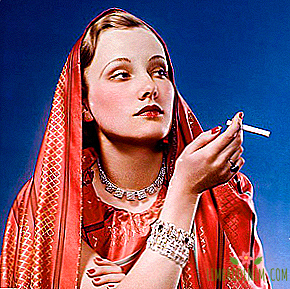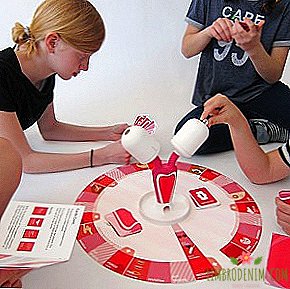Curator Natalia Protasenya about favorite books
IN BACKGROUND "BOOK SHELF" we ask journalists, writers, scholars, curators, and anyone else not about their literary preferences and publications, which occupy an important place in their bookcase. Today curator Natalya Protasenya shares his stories about favorite books.

Up to the end of the elementary school, reading did not interest me at all. Although the first "shot" happened in the classroom literature class in the second. We read one of Platonov’s children's stories. And there I came across the phrase "a staring star." I remember that I almost jumped up from the strange sensation of delight, which, it turns out, you can write about non-living objects like living things. Apparently, then I grasped the essence of metaphor, and it was a real discovery, a feeling of unlimited freedom in the treatment of language. After returning home, I sat down to scribble tales about this very star. I remember that I did it on a computer, like an adult, feeling like a real storyteller.
If we talk about a particular person who has formed a passion for reading, then this is, of course, a mother. She read to me almost all the famous children's books for the night (of which the favorite were the fairy tales of Gauf and the Brothers Grimm), and early began to advise me a rather serious and completely non-childish literature - those books that she herself loved and read in samizdat in her youth or with which she had something connected. It was Nabokov (samizdat "Camera Obscura" - the first thing I read and experienced a strange delight), Hemingway's Fiesta, Doctor Zhivago, all Kundera and Tsvetaeva's poems. These were too old books for my age, but that is why I was drawn to them irresistibly. Some completely different reality unfolded in them, so unusual and alluring that I promised myself that I would certainly get into it when I grew up. Now I understand that I am carrying a certain imprint of those books I read too early, and nothing can be done about it. Probably, this is that “turning” set of books and authors for me.
As a teenager, books became for me the only way to escape from the damn boring monotonous reality of school life, where every day was indistinguishable from the previous one - and so for ten years. Books made it possible to be carried off to other cities, to feel other smells and to experience a whole cocktail of sensations and shades alien to me. The book began to turn into a fetish: the smell of the pages, the graphics on the cover, the content itself - everything resulted in almost tactile pleasure from reading (I think this happens to many).
Surprisingly, I had absolutely no relationship with the school classics, with any. I was disgusted with the idea of transferring my precious book universe to a school class for discussion with classmates and a teacher of literature. In this I saw some desecration. Therefore, I deliberately tried to read books exclusively NOT from the list of school literature. Thus, my impression of Tolstoy, Dostoevsky and Gogol consisted of sluggish comments in the classroom, which convinced me even more that I would not read these authors. When the mind was a little popriva and I took them already at the institute, a strange thing was discovered: Gogol turned out to be brilliant and great, Dostoevsky too depressed, despite my deep sympathy for all his characters and the greatness of his humanism, and Tolstoy still remains unchallenged (to the huge shame).
If we talk about the undervalued writers, then this is probably Mariengof. I was shocked when I read "The Cynics" and "The novel without lies" - this is where, it turns out, the whole of Nabokov grew up! Especially since he himself called him "the greatest writer of the twentieth century." This is the language that makes Russian prose of the twentieth century no less great than literature of the 19th century. But here's the strangeness: Nabokov knows everything, and Mariengof - few, even in Russia. Perhaps it's in his pathos and mannerisms.
I absolutely can’t talk about some kind of “my whole life” writer - to single out one is as difficult as my favorite artist, director, etc. We change every day, every second, we grow (and in some moments even regress) in every period of life. New experiences, ideas, environments form new intellectual habits, and this is normal. I want to believe that in the end it is still a movement along an upward trajectory. If at 15 years of age, Hemingway was a real discovery in terms of language, then at 20 years old - Mayakovsky and other futurists, and at 22 I fell ill with Sartre's existentialism, which gradually brought me to philosophy.
At some point, I was very bored with the genre of the novel, and in general any fiction, I wanted to read books in which the meaning of life would be set out in a condensed form of a manifesto. Now I understand that a good novel is a manifesto, you just need to be able to read not only at the level of the plot and the formal merits of the language: under them there is a huge number of layers and social contexts that can only be considered knowing the history of the period in which this or that thing was written. For example, now I want to return to the novels of Jack London, Dreiser, Steinbeck, Zola, Musil, to read them in new ways. In this sense, Chernyshevsky’s novel “What to do?” Became one of the most important books for me, no matter how naively it sounded: I’m sure that, reading it at school, very few people are able to learn the realities that are relevant to this day by the utopian story. .
Unfortunately, I now have too little time for reading, and this seems to be the only thing I would like to do without stopping. For work and study I need to read a lot of theoretical literature - this excludes the slightest chance that I will ever allow myself to network for some novel. Reading at intervals in the subway, viewing important sites in between work hours, reading to a tired head before going to bed is all contrary to the very philosophy of reading, which requires the concentration of intellectual forces.
Another thing that was very difficult for me to put up with was reading from electronic devices. I resisted for a long time, thinking that if I didn’t feel the smell of typographical paint, it means that it’s not a reading, but a surrogate, but as the purchase of books turned into a serious expense item, I still started reading from the iPad. Moreover, the majority of theoretical books in foreign languages are simply impossible to buy in Russia in the paper version. To read digital files, I use Kindle and Evernote applications, which make it possible to select text. If you try hard, you can imagine that you are sitting with a pencil and reading a paper book.
It makes no sense to list the entire corpus of theoretical literature, which, in my opinion, is necessary for everyone to somehow sort out the reality around us, so when choosing 10 important books, I focused rather on fiction or near-artistic literature.

Simone de Beauvoir
"Second floor"
Perhaps this book could be called a turning point for me. But rather, not even a book, but a figure of the author, which in many ways shaped my sense of self. At first, de Beauvoir's novels, memoirs, and then Second Sex, seem to have created in my head an image of a free woman who is not afraid to engage in intellectual work alongside such a powerful figure as her husband. De Beauvoir became the first woman to become a member of the French Academy. As I read The Second Sex, I felt my injuries and insecurities disappear one by one. I think that this book is obligatory for reading not only for women, but also for men who want to know what it is like to be a woman, and learn to live with us side by side in harmony and respect.
Vladimir Mayakovsky
"Love"
As I have already said, the language of Mayakovsky and the futurist poets of the early twentieth century drove me crazy. I can re-read "Spine Flute" and "Cloud in Pants" endlessly and every time I will experience the same delight when it takes breath away from some lines. The revolution that he made in the language can be compared with the social revolution of the same period in history - and these things are certainly connected! It is a pity that thanks to the same school curriculum, and even earlier, after his death - the recognition of Mayakovsky as the main poet of the USSR, he is known, first of all, for his political poems and advertising slogans, and not for the lyrics, which he has exceptionally strong.
Lilya Brik
"Biased Stories"
"Biased Stories" - my favorite genre, memoirs. It was for him that I studied Russian literature and history as a teenager. Reading about the life of the Soviet art bohemia of the beginning of the twentieth century would bring Milonov to a heart attack. The freedom that prevailed in this community, their fierce creative energy, devotion to each other, and faith in the ideas of revolution mixed with poems - is this not an exciting reading for a girl of fifteen? I suspect that this is where my love for poetry and literature of that period began, which I don’t regret at all.
Vladimir Glotser
"Marina Durnovo: My husband Daniil Kharms"
Another diary of a beautiful and courageous woman - the wife of Harms, Marina Durnovo, a former noblewoman, who left everything and went to live with a funny eccentric in a barn. All the same bohemian frenzy, multiplied by the tragic love and crazy talent of my beloved Kharms, but only without embellishment: poverty, hunger, forced labor, arrest and the threat of shooting Kharms show the young socialist state slightly differently than the memoirs of people from Mayakovsky's circle, who relations with the authorities have developed more successfully. The book is dear to me by the fact that a corner of hers gnawed on Winston's beloved dog, who died last year. Such a memory of him remains. In general, he gnawed on books exclusively - apparently, he was also a bibliophile.
Ernest Hemingway
"Garden of Eden"
This novel about love three together echoes the plot of "Love" by Gaspard Noe. As usual, I read it early, but, strangely enough, it came to me that when two loving people, fed up with each other, inevitably start to get bored and look for fresh sensations outside, this inevitably leads to a catastrophe. The scandalous novel turned out to be instructive, and I learned this lesson, even though the book remained unfinished - Hemingway died without finishing it. A classic of American literature, so subtly understood in the nature of human feelings, at the end of life made us a farewell farewell: "Learn to appreciate true love."
Boris Vian
"Foam days"
The book that I took from a friend at the institute and never returned - it was too pleasant to hold in my hands the real French edition with a comic on every page. If you ask me how I imagine true love - the answer will be "Foam days." The futuristic novel, where reality merges with science fiction, and the pure, devoted love of two young people, in which a serious illness interferes, is one of the most tragic scenes that I know, and, unfortunately, is very personal. Probably, I would like to re-read it now, ten years later.
Milan Kundera
"The Unbearable Lightness of Being"
In this book, I was struck by how the social and political context of Prague in 1968 interweaves the plot of the complex relationship between the two endlessly cute main characters to me. Love, politics and struggle make this book sign and strongest in Kundera. The endless scorch of melancholy peculiar to him after reading the novel leaves a deep imprint: the whole complexity of love and social processes in the turbulent 60s is revealed through a very contradictory and frank history of the relationship of the main characters. It seems to me that this is another novel that has shown me how difficult it is to live and love in a world where, in addition to your personal experiences, there are plenty of external threats to your relations with others.
Jean-Paul Sartre
"L'Âge de raison"
At the institute, I studied French and pestered all my friends who were leaving for France to bring me books and magazines in French from there. From there I drew living French vocabulary that did not smell at the faculty of linguistics - it was a completely different language that fascinated me and that I wanted to master. One day, a sister's friend brought me from Paris the first part of Sartre's unfinished tetralogy "The Road of Freedom". In part, the autobiographical novel "The Age of Maturity" describes the whole set of worrying existentialists experiences: a revolt against the bourgeois, the struggle for personal freedom, ethical choice, the inertia of being, etc.
For me, this novel became the key not only to the philosophy of existentialism, but also to itself: when I recognized myself in describing the feelings of a 30-year-old man at the beginning of the 30s, it became much easier for me to breathe. I remember when I told a friend that I was reading Sartre, he said a little arrogantly: "I hope you are not serious?" Then I got angry, but now I understand that in my hobby for Sartre there would be some sort of naivety. Probably, now I would begin to reread it either during periods of strong emotional experiences (as a painkiller), or from cultural interest.
John Maxwell Coetzee
"Disgrace"
I bought this novel because it received Booker and I wanted to read some of the most up-to-date contemporary prose. Despite a rather trivial plot, where the over-age teacher seduces his student and loses his place at the university, I was fascinated by Coetzee’s way of describing the internal ethical torments of a person who has broken the line of social norms and decided to punish himself for it. The hero becomes a hermit and condemns himself to endless reflection on what is morality. Although the whole novel is riddled with gloomy arguments, with a touch of dostoevschiny and still of the same existentialism, he left a very deep impression, as he raised those questions that I still try to find the answer to.
Marie Madeleine de Lafayette
"La Princesse de Clèves"
My only favorite subject at the institute was French literature, mainly due to the charismatic teacher, whose favorite expression was: "Deva, your head is sterile, like in the operating room." And although he told more about Cervantes and Pushkin than about French authors (now I understand that this is exactly what I need to talk about French literature), Princess of Cleves was acutely recommended for reading as one of the first examples of the psychological novel that formed this genre and influenced the entire history of the European (and, through Pushkin, Russian) novel.
Understanding that without the "Princess of Cleves" there would have been no Pushkin and Dostoevsky, I, having got to Paris in 2009, went to the book. After reading about a third, I quickly got tired of recounting the intrigues of the Valois court and the overly pompous style of narration, but what was my surprise when it turned out that the main theme among all my French friends that summer was Princess of Cleves. It turned out that the case was in a scandal that broke out after Nicolas Sarkozy, being a presidential candidate, expressed doubt about the need to include this novel in the list of mandatory literature for the oral examination in the departments of administrative management.
There was an outburst of indignation from both the left and the right. At the demonstrations, excerpts from the novel were read into a megaphone, and at the Book Salon 2009 in Paris, the icons “I read Princess of Cleves” were distributed. In fact, this novel is still disturbed by the best minds - it continues to make films: “Loyalty” by Andrzej лавulavski with Sophie Marceau or “The Beautiful Fig Tree” by Christoph Honore with Lea Seydou and Louis Garrell, where the action takes place today.
Nora Gal
"The word is alive and dead"
Nora Gal is a brilliant translator from the famous Kashkinsky school of translation. Her natives discovered American literature for Soviet people: Hemingway, Faulkner, Dreiser — and in Russian these authors sounded almost better than in the original. But the Hemingway language is not to be confused with anyone else: rude, concise, simple and at the same time complex - it took incredible skill to convey all this in Russian. “The Little Prince” in the translation of Nora Gal is still considered to be the standard of literary translation, since not a single stylistic nuance of the original was damaged during the work on it. And Nora Gal publishes a book on how to translate, but not only about it: how to properly handle the language. This book at one time turned my ideas about the Russian language. A set of practical tips, which she illustrates with examples of successful and unsuccessful translations, helps to master the skill of stylistics, and this is simply necessary for any writing person. And if now I am able to clearly and clearly express my thoughts on paper, in many respects thanks to this book.




